|
13th May 2022 Friday the 13th continues and we in Farnborough for some more after work gaming goodness. Many games have small components that could be considered choking hazards, that however is not the case with... Joking Hazard, a game inspired by the Cyanide & Happiness comic strip. What's in a game?
There's not much more to say about the cards, they're quality is pretty good, considering the game's origin, the artwork is exactly what is expected and the game uses no iconography. How's it play? Setup
On to play Individual cards in Joking hazard essentially have no context and this is a game about putting them into context by constructing jokes out of 3 comic panels, only the comic panels will be to some degree randomly created.
Endgame The first player to win 3 points, wins! Overall
Joking Hazard is an accessible party game that can be played by up to 10 participants and is equal parts mildly amusing and mildly offensive. Well... as offensive as the Cyanide & Happiness comic it's based on. So I guess if you're easily offended, you might want to give this a miss. From a gameplay perspective, you would be forgiven for thinking Joking Hazard is just the same as other 'you be the judge' games. However, Joking Hazard differs because individual cards have no context. There is no statement A and answer B. The players create context themselves, which gives the game a slight edge. Is it any good though? The answer is; sort of, which to be honest, is not a good answer really and a bit of a cop-out. But the truth is; this games clearly sits in the domain of beer-and-pretzels. If you're going to be playing it with a bunch of slightly dour-faced gamers who usually play 6 hour empire building, resource managing, epoch spanning games, no one's going to enjoy this. However, if you play it with some work colleagues or non-gamers who's only understanding of games is 'Is it like monopoly?' then they'll probably have a blast, especially if they've had a drink or two and that's who the game is targeted anyway.
0 Comments
5th April 2022 It's a Tuesday and we're at The Sovereigns with the Woking Gaming Club for some gaming goodness. 'I enjoyed Muffin the Mule.' 'You can get locked up for that.' No wait, this isn't about Muffin the Mule, its about Muffin Time. 'I enjoyed Muffin Time.' Not sure that sounds better? (Apologies for the old Goodies joke.) Muffin Time is a light, off-beat party game that's easy to pick up and player with supposedly 20 minute play time. What's in a game?
The game utilises comedic and cartoony black-line illustrations with a dash of bright colour for the borders and card titles that suitability fits the game's style. There's no iconography in Muffin Time to speak of and the game's filled with unusual or unique cards and rules exceptions. Consequently, all cards contain specific text on how they function. How's it play? Setup
On to play The objective in Muffin Time is for a player to acquire exactly 10 cards at the start of their turn. The game uses a typical turn order, at least it does at the start with the active player acting and play progressing to the left. There are 2 phases to each turn.
Endgame Play continues until any player has acquired exactly 10 cards in hand, upon which they must immediately shout 'It's Muffin Time!' If, when that player becomes the active player they still have exactly 10 cards, then they win the game! Overall
Despite being a rules-light game, there's a couple of interesting elements at play in Muffin Time. Firstly and most obviously, are the trap cards: They require players to pay attention to the behaviour of their opponents in order to trigger traps. However, there's also a higher level of play at work, where participants can try to induce other players into falling into their traps, such as my aforementioned attempts to get the other players to yawn. It add an unusual and interesting facet of playing the player and not the game to the mix. Secondly, is the action economy: Play a card or draw a card, it's a simple rule but it has an interesting effect. Essentially, playing a card gains the player whatever benefit that card gives them but it also loses them that card from their hand, thus making their goal 1 step further away. Does the benefit of playing it outweigh the cost? The answer will always be contextual, especially since some cards do stuff that's just funny and players will end up playing them just for the sake of playing them. The same quandary is actually also true of counter cards. The core gameplay is highly situational, it requires players to adapt to unpredictable turns of play and exploit events as they occur with the cards they have in hand. This is not a game of planning ahead too much. It's also bit of a silly game with some silly card actions such as 'Last player to stand up discards 2 cards.' There are also cards that may change the win condition, turn order etc. If this sort of thing is an anathema to you, Muffin Time is probably one to skip. Otherwise there's not too much to add about Muffin Time really. it's an easy to learn, pick and play party card game that can be a lot of fun if you don't take it too seriously and allegedly has a 20 minute play time and can be a good filler or finishing game. I say allegedly 20 minutes because circumstances and certain card plays can dictate otherwise - games can go on considerable longer, is that good or bad? Muffin Time can be very enjoyable but it can also outstay its welcome. So, YMMV. Don't let that put you off though. I feel that Muffin Time is good party game when played with the right mindset and is worth trying. 13th March 2022 It's a Sunday evening and we're logged into Board Game Arena for some gaming fun. As the title implies, Stella - Dixit Universe is a offshoot of the game Dixit and while it is different, it does share some elements with its predecessor, mostly notably having artwork on cards which share the same almost abstract, dreamlike quality. In fact in the physical version, both games share the same backings for these cards, meaning they're interchangeable between the two. Caveat: We've only played Stella - Dixit Universe digitally. What's in a game?
There's minimal art elsewhere. The game's iconography is also minimal to the point of being almost non-existent. How's it play? Setup
On to play Similar to its predecessor, Stella Dixit Universe is word association game, but here, the word is chosen by the game. 4 rounds are played during the game and each round has 3 phases. The first 2 phases are essentially performed simultaneously, with the 3rd phases occurring in turn order.
Endgame Once the 4th round has been completed, players should total their scores from across all 4 rounds. Points are tallied, highest score wins. Overall
Like it's earlier iterations, Stella - Dixit Universe can be a divisive game, its core mechanic is acutely subjective in nature and it can be a real love/hate thing! Certain types of gamers; those who enjoy the heavier, analytically and mathematically driven games may well be frustrated with a game about trying to guess what other players might think of a particular word. Social skills are important here, it's more about playing the player than playing the game, understanding how they think and what they'll pick. As with its predecessor, Stella - Dixit Universe uses a mechanism to score more VPs when making a slightly more obscure choice which can trigger a super-spark. I feel the game has the same quirk with the rule as well; players who know each other well will be at a advantage here. Other than trying to predict what other players will do, there's also a balance between how many associations to make with a word. Too few and players risk scoring less, while too many could end up costing points, generally it's prudent to err slightly on the cautious side and avoid being the player In The Dark. It obvious why the rule exists, it's to stop players haphazardly selecting too many words but it's still a little frustrating and also a bit of a finicky rule. That brings me to the one real bugbear I have with the game and that's the rule with Falling. If a player Falls, they immediately stop scoring, so if a player falls at their 1st reveal, they score nothing for that round - and worse, other players can still score off them! Conversely, if they fall with their last choice, the damage is minimised. I know that choices on the order to reveal cards are part of the game and cards which are seen as less risky should be selected fist and the rule offers a genuinely meaningful decision but even so, I found it immensely irritating. Although perhaps I'm not the best judge, I can be ambivalent with this type of game, it generally doesn't suit my style of play and and maybe I'm a bit too harsh. When I remember to adopt a particular mindset to playing it, there's definitely fun to be had. Stella - Dixit Universe plays with 6 and veers into party game territory, it's a light crossover game that's pretty easy to pick up and play and will allow non-gamers to get stuck in and enjoy themselves Treat it as a fun diversion more than a serious game and Stella - Dixit Universe is an enjoyable experience. 4th March 2022 It's a Friday and I'm in Farnborough with some workmates for some evening games. The first game of the night is essentially 3 Wise Monkeys: The Game, known as Team3, although I'm not certain any of us are particularly wise? What's in a game?
The blocks are made of sturdy colourfulplastic and feel very tactile, handling and playing them feels quite satisfying. Otherwise, the cards are pretty standard quality. The game's art is monochrome and only appears on the role cards. The 3 illustrations are slightly cartoony looking but also fairly good. Other than the images on the blueprint cards, there's no other iconography in the game. How's it play? Team3 can be played cooperatively as a team if 3 or competitively as 2 teams of 3. The 2 play styles are practically identical, the only real difference being how the blocks are allocated. For the purposes of this blog, I'm going to describe the competitive game and point out how the cooperative game is different. Setup
On to play Both teams play simultaneously and have the objective of putting together their blocks in the shape/configuration shown on the card which was drawn. However, there are some complications to this...
Endgame The team that reaches 6 points first, wins. Although this limit is fairly arbitrary and players can choose whatever score limit they want. Cooperative In the cooperative game, the team gets 3 minutes to complete a blueprint, if they take longer, they fail. 3 minutes might seem a lot, but the 2 and 3 star difficulties get much more complex. Overall
There's little strategy that can be adopted when playing Team3, that's not a criticism though, Team3 is sort of a hyped version of charades that's all about communication and interpretation between teammates. As with actual charades, players will probably very quickly adopt some standard gestures to represent certain things. It's also worth adding that the game comes in 2 versions Green and Pink, which can be combined to support up to 4 teams of 3 players. There's not much more to say about the Team3 really. It's a light party game that is easy to learn and will have a lot of crossover appeal, it's not something to be taken seriously. If you looking for deep gameplay, look elsewhere. With the right people though, Team3 can be a fun diversion or a good filler game. |
AuthorI play, I paint. Archives
March 2024
Categories
All
|

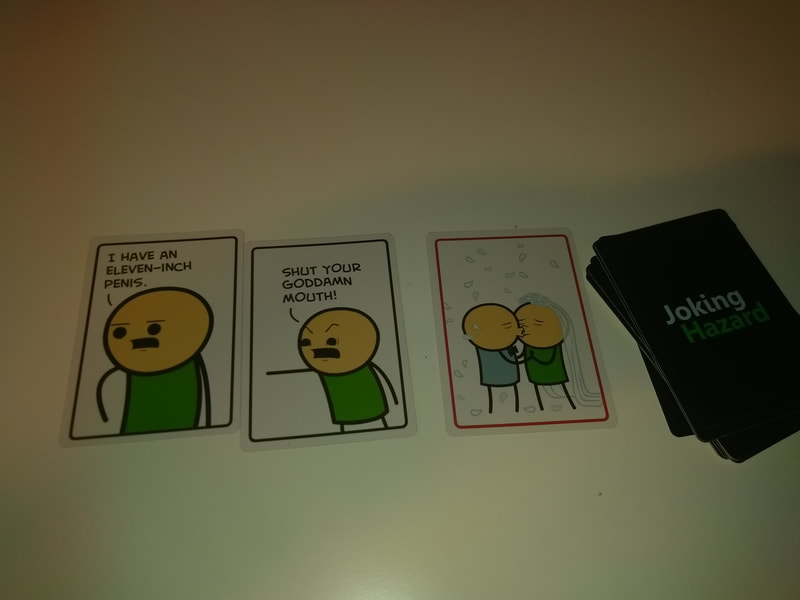
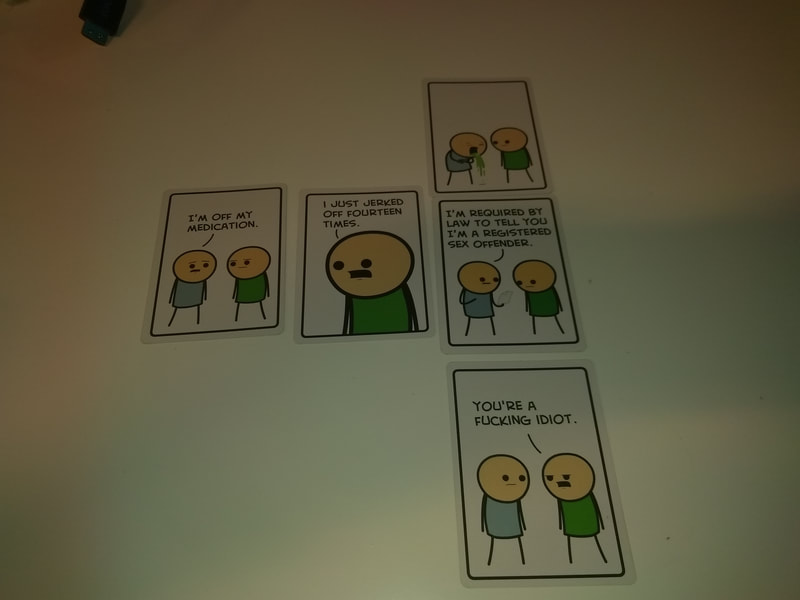
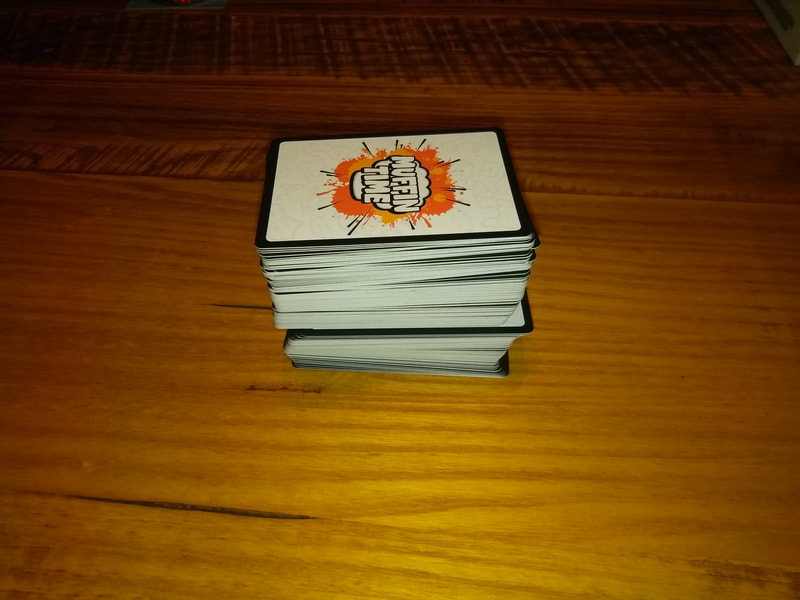
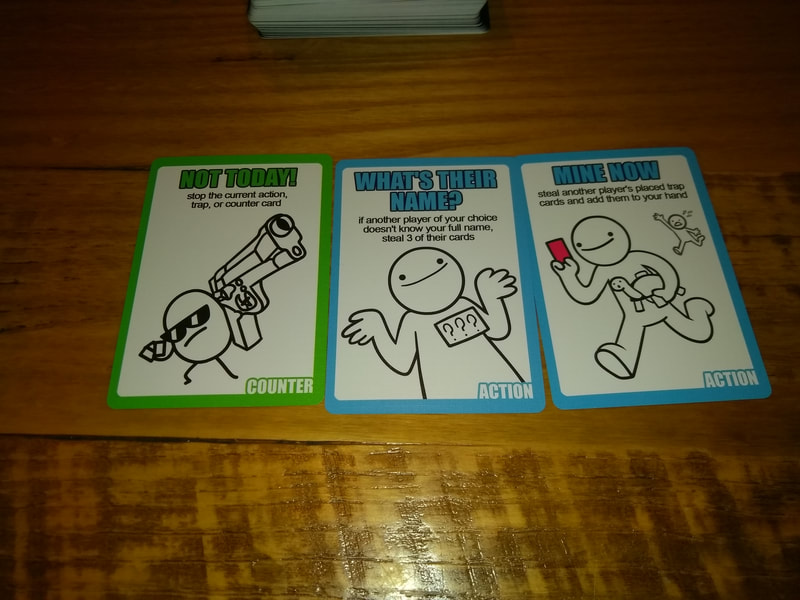
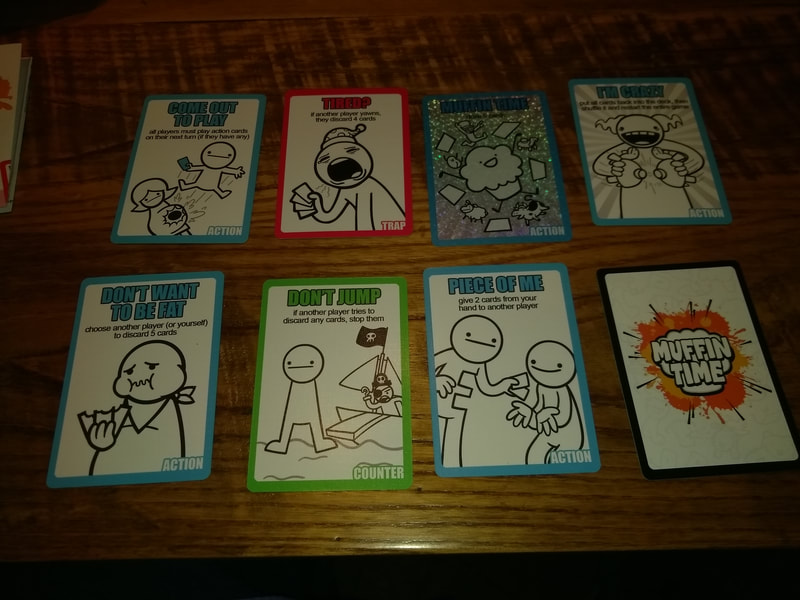
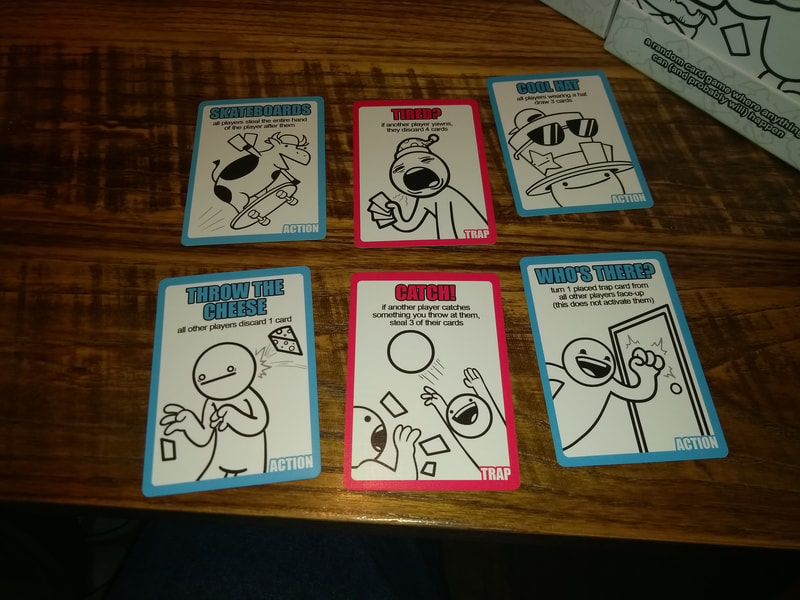
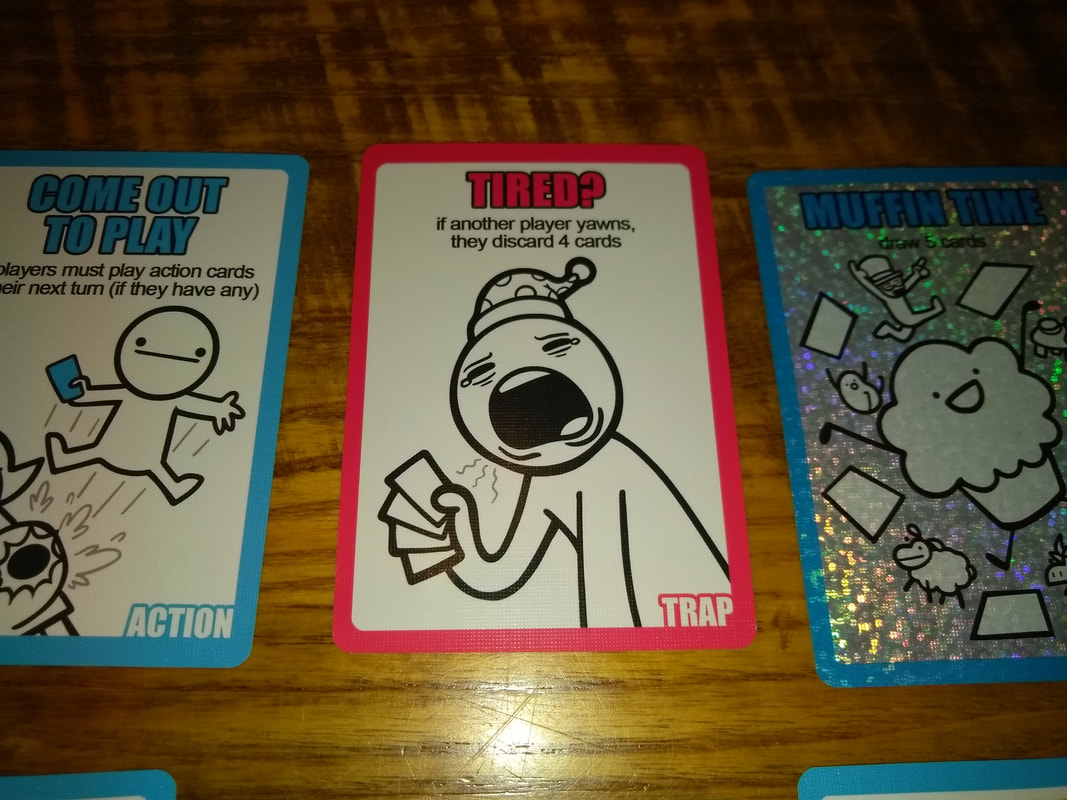
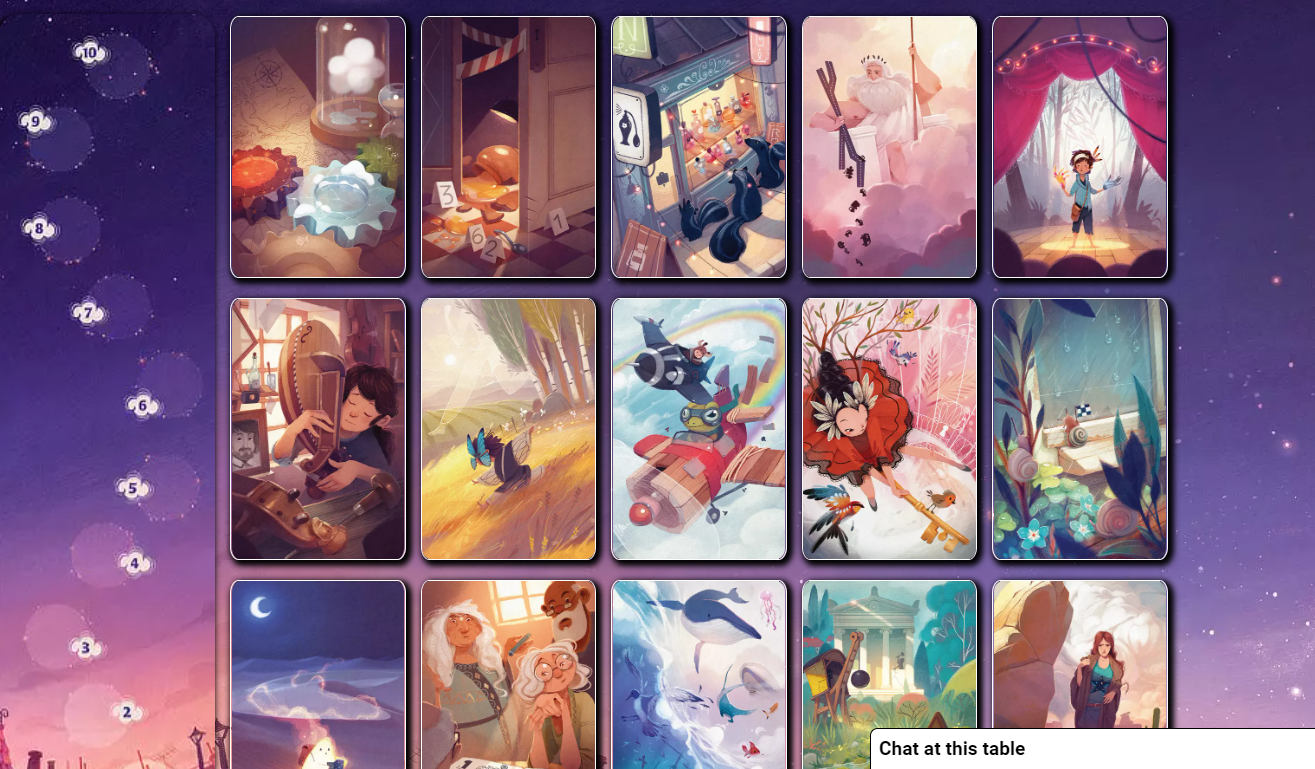

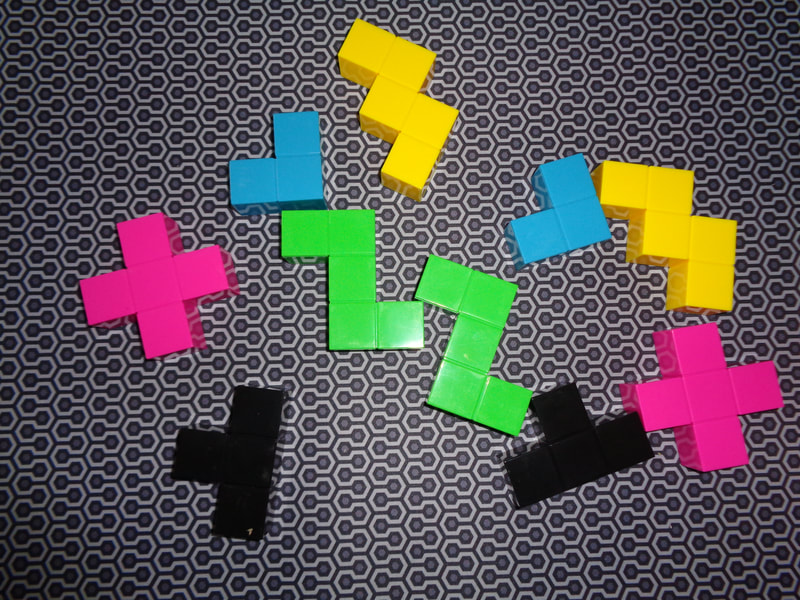
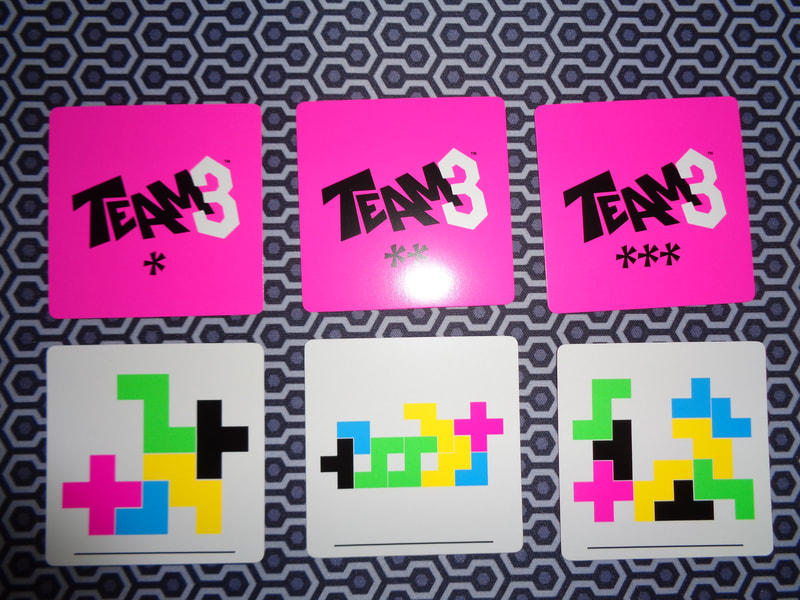
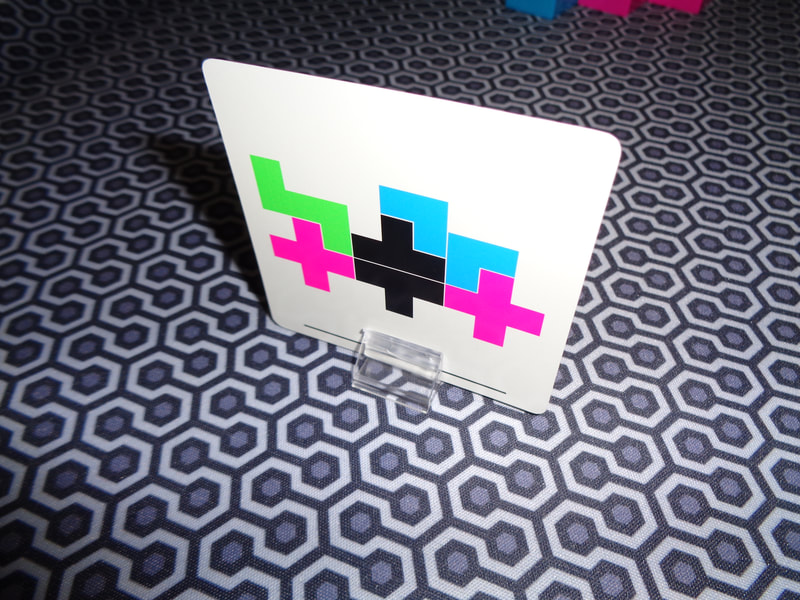
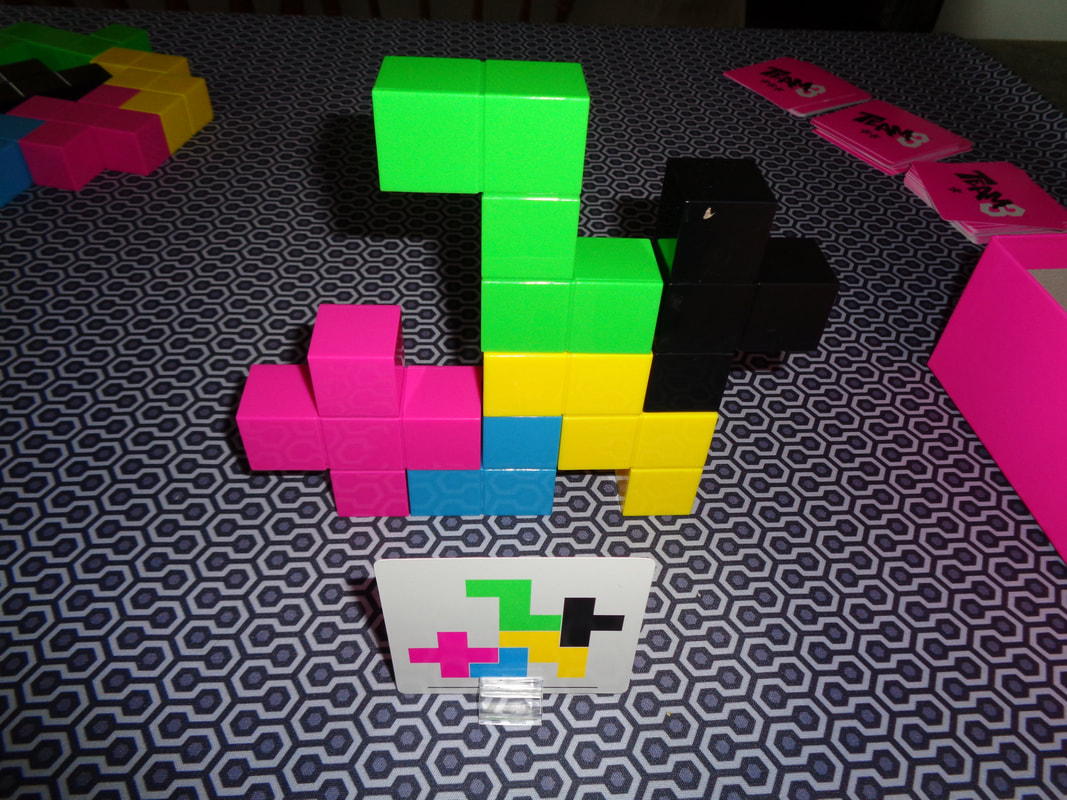
 RSS Feed
RSS Feed
